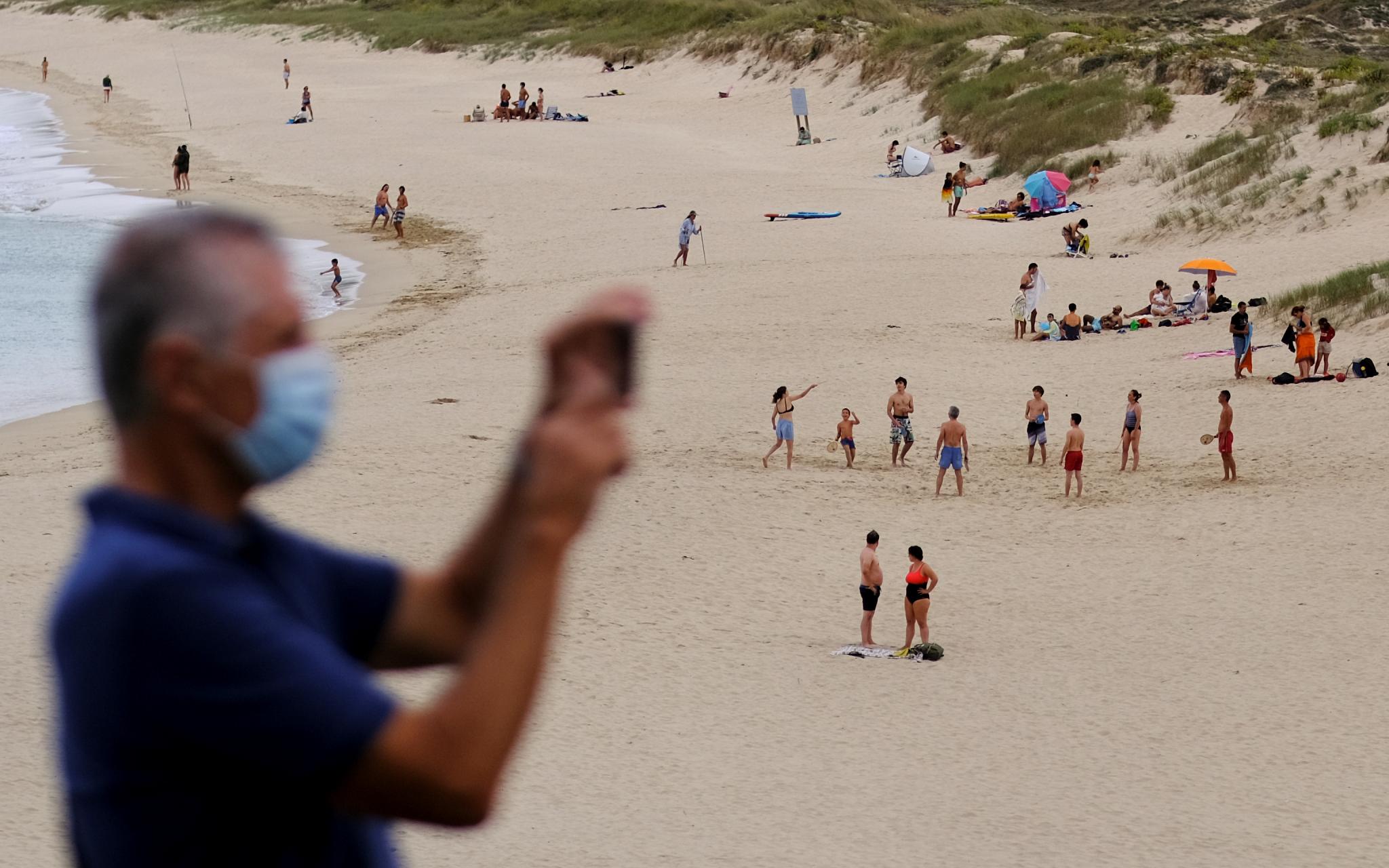Spain usually receives more than 80 million foreign visitors a year, making it the world's second-most visited country after France. But it was domestic tourism, with 3.2 million customers, that helped keep the travel sector afloat last month, the National Statistics Institute said.
The number of foreign visitors rose from just 114,667 in June - but it remained just a fraction of July 2019's 6.45 million.
Spain, which depends on tourism for around 12% of gross domestic product, reopened its borders to Schengen countries and a select group of third countries last month, and hoteliers made just over half of their total bed capacity available.
The average occupancy rate was around 36% even though hotels cut their prices by 8.2% compared with July 2019.
Altogether, overnight stays in the first seven months of the year have fallen more than 70%, INE said, due to travel bans and quarantine rules for travellers returning from Spain.
At the end of July, new outbreaks in Catalonia and the northeast of Spain led many countries, including Britain, to discourage their citizens from travelling to Spain, imposing quarantines or requiring them to be tested upon return.
Catalonia and the Balearic Islands, among the most popular destinations for foreign tourists, have suffered a drop in visitors close to 90%.
One in four of the foreign visitors who stayed in a hotel in Spain in July were German. But the German numbers were still down by almost 80% while British ones were down by more than 90%, INE data showed.


No comments
To be able to write a comment, you have to be registered and logged in
Currently there are no comments.